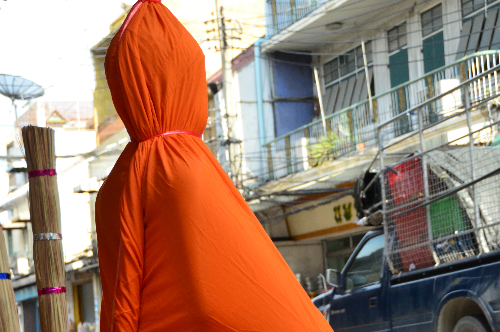
When I read that two backpackers had mysteriously died in Southeast Asia at the end of July, my heart sank. Just two years ago, I also capped off a year teaching English in Asia with a trip up the Vietnamese coast.
I shared the story, which included an appeal for donations to the girls’ families, but I didn’t hear anything else about it until yesterday, when I came across a CNN article titled “Mysterious tourist deaths in Asia” during a completely unrelated Google search.
CNN staff writer Jacque Wilson speculates that poisoning was the cause of these deaths, and hopes that raising international awareness about them might coax corrupt, ineffective local authorities into a large-scale investigation. This is a good thing!
But Wilson (or, perhaps, her editor) has framed the tale in a way I fear will only make people more afraid to travel.
“The travelers’ stories,” she laments, after dramatically recounting the circumstances of the English teachers’ deaths, “are just the latest in a string of mysterious tourist deaths in Southeast Asia.” She goes on to cite five other examples of Western tourists who have passed away unexpectedly while traveling in the region.
Wilson buoys these “facts” with direct quotes from various members of the victims’ families, many of whom express hindsight regrets about their loved ones’ decisions to have traveled, as if they somehow “should have known” what questionable decisions they were making.
The article concludes with a call to action, be it “better education, tougher insecticide regulation or banning chemicals outright,” with the end goal of making sure that when parents send their adventurous children “backpacking in Southeast Asia, it will not be the last goodbye”
Give me a fucking break!
To play devil’s advocate for a moment, travel in Southeast Asia can be dangerous. I have twice succumbed to severe food poisoning in the region.
In both cases, I became more ill than I’d ever been in my life, and had access to only basic medical care, even though I sought aid from “reputable” Western doctors. In the latter instance, the thought that I might die actually did cross my mind.
But the chance of death from travel in Southeast Asia is statistically insignificant; you have a greater risk dying in a car accident, from cancer or from a heart attack. (Or, in America, from being shot.)
According to the Association of Southeast Asian Nations (ASEAN), more than 80 million tourists visited countries like Thailand, Vietnam and Myanmar in 2011 alone. Even if 100 times as many tourists as the seven profiled in the CNN article perished during this time, it would represent less than a thousandth of a percent incidence.
Travelers are almost always aware of the risks they take. Here in Bangkok, I catch rides on motorbike taxis several times per week, even though most don’t offer helmets. I have hiked alone through through the snake-infested Outback in Australia; I scaled Corcovado in Rio de Janeiro on foot, even though I had to walk through a favela with my $2,000 camera.
The risk of death while traveling is almost always marginal, even if you are extremely reckless. And it is always offset by the reward of living, which is all but guaranteed.
The CNN article only briefly alludes to this truth we travelers hold sacred, and only for the purpose of making a fallacious link between wanderlust and carelessness. Shame on you, Jacque Wilson and your editor, for completely missing the point.

Robert Schrader is a travel writer and photographer who’s been roaming the world independently since 2005, writing for publications such as “CNNGo” and “Shanghaiist” along the way. His blog, Leave Your Daily Hell, provides a mix of travel advice, destination guides and personal essays covering the more esoteric aspects of life as a traveler.








